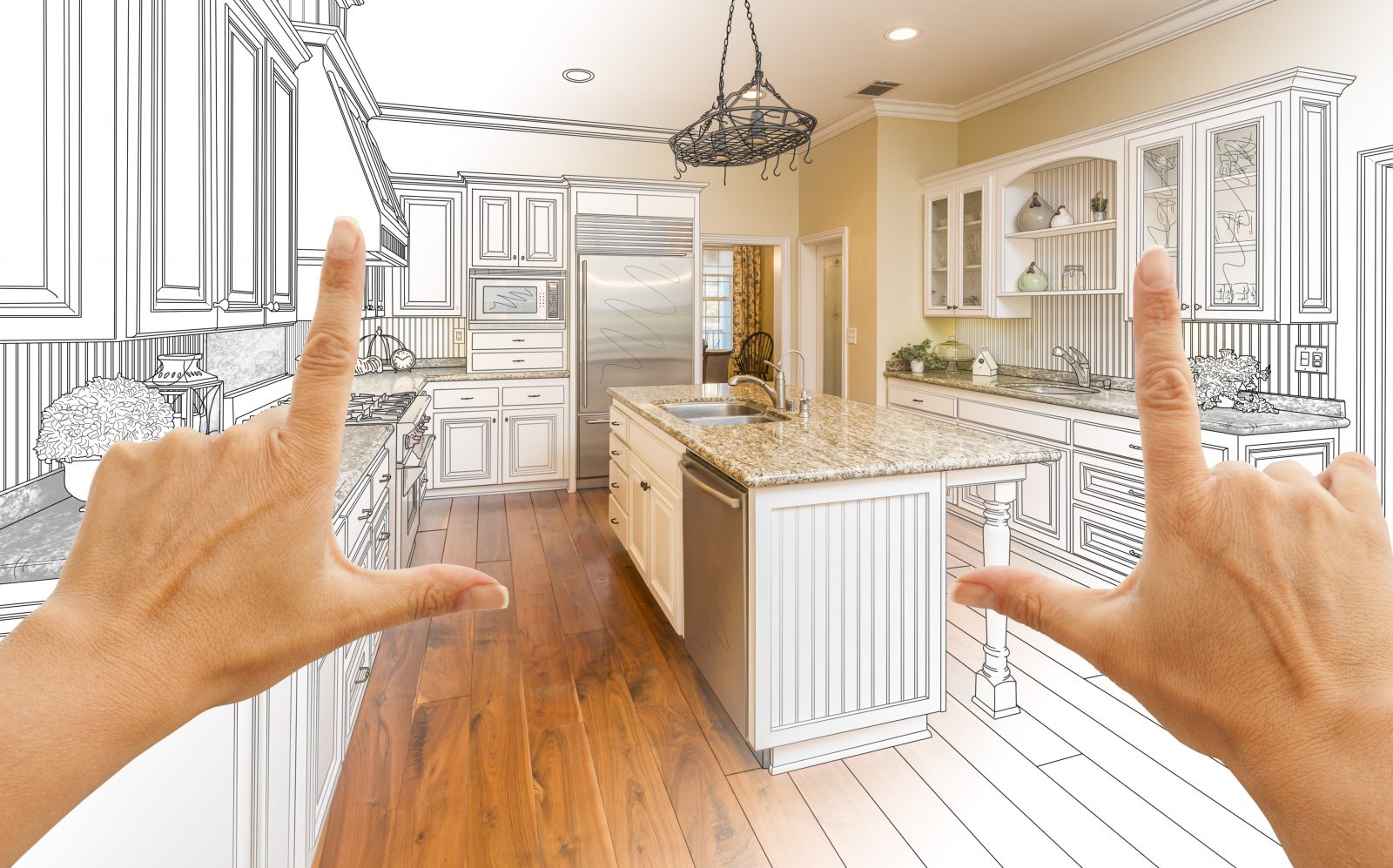You Ask, We Answer: What’s a Construction Loan?
Your Calcagni Real Estate agent has found you the Connecticut house you’ve been searching for: the right location, the right square footage, the right price—but you have a vision for altering the layout and decor that will really make your house a home. If this sounds familiar, keep reading to see if a construction loan is the right fit for helping to pay for your home renovations.
What is a construction loan?
A construction loan is sometimes referred to as a “self-build” loan, and is a loan used to finance either the building of a home or home renovation. A homeowner or builder uses this short-term loan to cover the costs of the project, including demolition and renovation expenses, windows, appliances, roof replacement, plumbing, electrical and other costs associated with the home renovation or restoration.
How does a construction loan work?
Constructions loans are generally procured by homeowners or builders who want to either custom-build or renovate their homes. They are short-term, to be used within a year or so.
One of the appeals of a construction loan is that the borrower may only be responsible for paying the interest on the loan (meaning, no principal payment is due) for its duration. Once the construction of the home or the renovations are complete, borrowers often have the opportunity to refinance the construction loan into a permanent mortgage. In some cases, the borrower may obtain an “end loan” to pay off the construction loan.
Construction loans do require oversight from the bank. Borrowers will most likely be expected to provide a list of contractors, proof of insurance for each contractor or vendor, architectural plans and local building permits, proof of credit history, a post-construction appraisal, and a draw down schedule that will allow the bank to issue payments to the corresponding vendor for work approved by the bank ahead of time.
Are there different types of construction loans?
There are several types of construction loans. The construction-to-permanent loan, according to forbes.com, “finances construction of a home and then converts into a fixed-rate mortgage once the home is completed.” This loan often works best for borrowers who want to lock in financing and save money on closing costs.
For those homeowners who have access to a large amount of cash, or who will pay off their construction loan when they sell their previous home, a construction-only loan may be the best fit. Forbes.com explains that these loans are a “short-term, adjustable-rate loan that is used to complete construction of a home. After construction is complete, the loan must be paid in full or refinanced into a mortgage. This requires two application processes and two closings.”
If you have experience building houses and aim to act as your own general contractor, the owner-builder loan may be right for you. “Draws are made to the owner-builder, rather than to an approved third-party contractor,” according to forbes.com, and “ these loans are usually only available to owners who can demonstrate experience as a homebuilder or have a contractor’s license.”
Lastly, if you’ve purchased a fixer-upper and are intending to undergo extensive renovations, the renovation loan may be the best fit. “Most akin to a traditional mortgage, renovation loans cover the cost of purchasing a home and performing major renovations,” forbes.com notes. “Because of this, the loan amount is based on the anticipated value of the home after renovations.”
Who qualifies for construction loans?
Borrowers seeking construction loans will be required to meet certain criteria set forth by their individual bank, but there are commonalities between lenders that borrowers may want to be aware of ahead of time.
Most lenders will require a 20%-25% down payment on a construction loan. Buyers with a limited credit history may have difficulty securing a construction loan, and all borrowers will probably be expected to provide very detailed information about construction details prior to loan approval, along with proof that their builder is qualified to complete the work to pass inspection.
Speaking to your bank is the best way to begin the construction loan process. While there are many details that will need to be ironed out prior to your construction loan closing, many homeowners find its benefits outweigh the heavy lifting prior to receiving the loan. If your Connecticut home is awaiting renovations to truly make it your own, a construction loan might be just the answer you need to get started.




